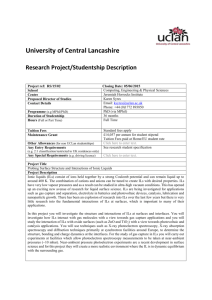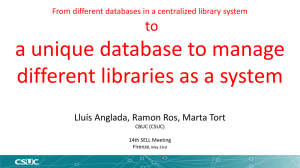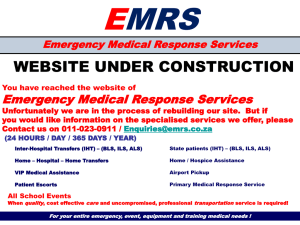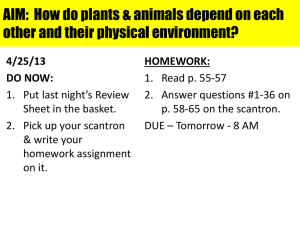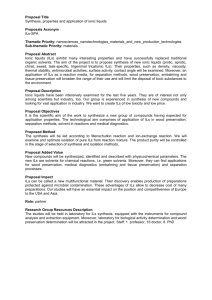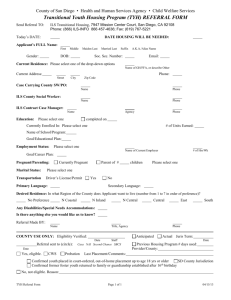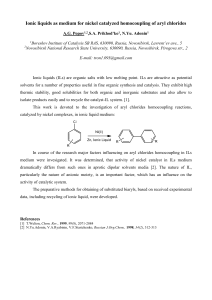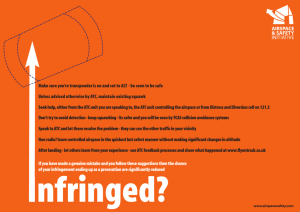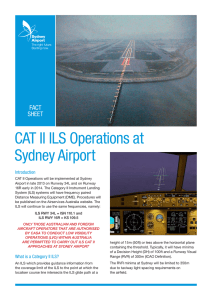16 November 2010 - ILS Multipath Protection
advertisement
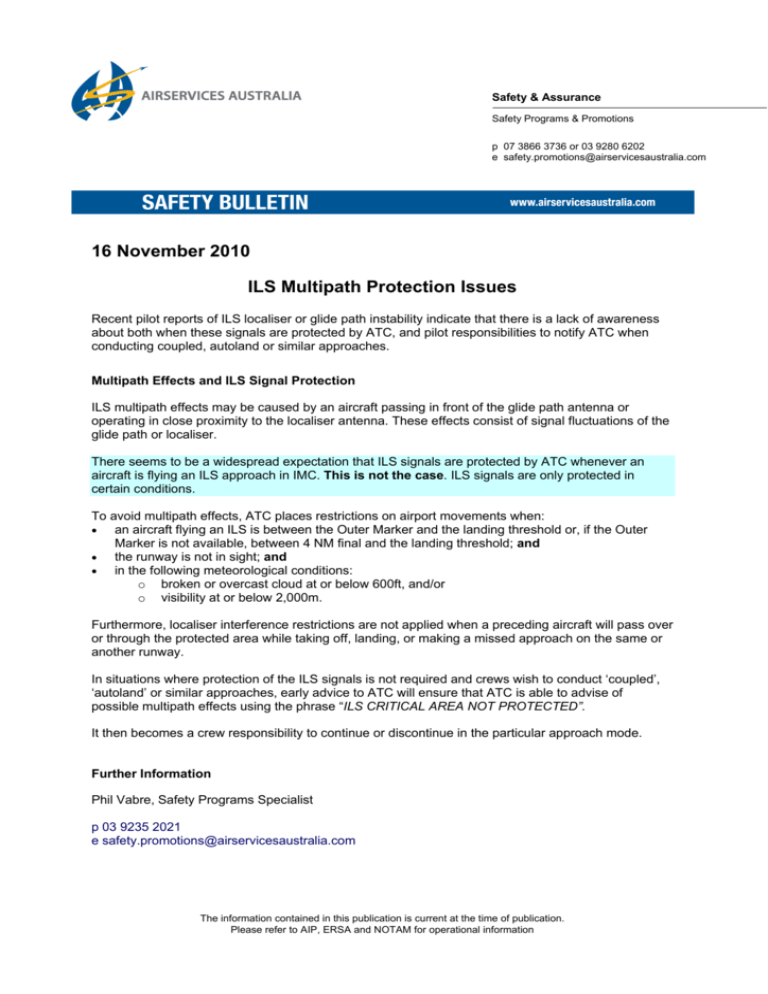
Safety & Assurance Safety Programs & Promotions p 07 3866 3736 or 03 9280 6202 e safety.promotions@airservicesaustralia.com 16 November 2010 ILS Multipath Protection Issues Recent pilot reports of ILS localiser or glide path instability indicate that there is a lack of awareness about both when these signals are protected by ATC, and pilot responsibilities to notify ATC when conducting coupled, autoland or similar approaches. Multipath Effects and ILS Signal Protection ILS multipath effects may be caused by an aircraft passing in front of the glide path antenna or operating in close proximity to the localiser antenna. These effects consist of signal fluctuations of the glide path or localiser. There seems to be a widespread expectation that ILS signals are protected by ATC whenever an aircraft is flying an ILS approach in IMC. This is not the case. ILS signals are only protected in certain conditions. To avoid multipath effects, ATC places restrictions on airport movements when: an aircraft flying an ILS is between the Outer Marker and the landing threshold or, if the Outer Marker is not available, between 4 NM final and the landing threshold; and the runway is not in sight; and in the following meteorological conditions: o broken or overcast cloud at or below 600ft, and/or o visibility at or below 2,000m. Furthermore, localiser interference restrictions are not applied when a preceding aircraft will pass over or through the protected area while taking off, landing, or making a missed approach on the same or another runway. In situations where protection of the ILS signals is not required and crews wish to conduct ‘coupled’, ‘autoland’ or similar approaches, early advice to ATC will ensure that ATC is able to advise of possible multipath effects using the phrase “ILS CRITICAL AREA NOT PROTECTED”. It then becomes a crew responsibility to continue or discontinue in the particular approach mode. Further Information Phil Vabre, Safety Programs Specialist p 03 9235 2021 e safety.promotions@airservicesaustralia.com The information contained in this publication is current at the time of publication. Please refer to AIP, ERSA and NOTAM for operational information


